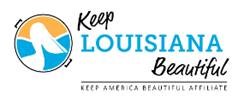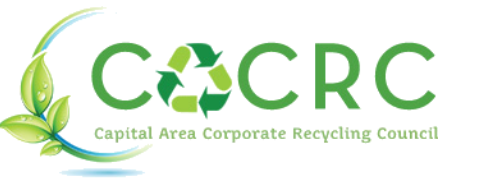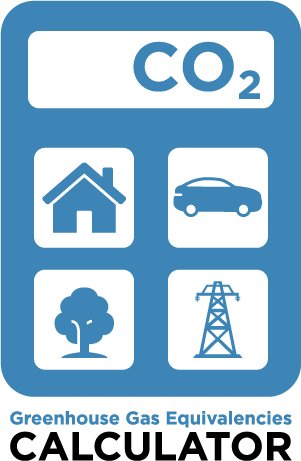 LOUISIANA DEPARTMENT OF ENVIRONMENTAL QUALITY | Secretary Courtney J. Burdette
LOUISIANA DEPARTMENT OF ENVIRONMENTAL QUALITY | Secretary Courtney J. Burdette
 A DEPARTMENT OF THE STATE OF LOUISIANA
A DEPARTMENT OF THE STATE OF LOUISIANA
RECYCLING COLLECTION CENTERS AND MRFs
Annual Recycling Report Form for Parishes and Municipalities
The Louisiana Revised Statutes 30:2413.A.9 requires LDEQ to submit an Annual Recycling Report to the House Committee on Natural Resources and Environment and the Senate Committee on Environmental Quality on the status of resource recovery and recycling programs in the parishes and municipalities throughout the state. In an effort to develop, strengthen, and implement comprehensive data collection efforts that demonstrate progress towards the National Recycling Goal and Food Loss and Waste Reduction Goal, LDEQ has secured the Municipal Measurement Program™ (MMP™), an online survey platform for standardized reporting. The MMP™ is free for parishes, municipalities and collection centers. LDEQ will use the MMP™ as an assessment tool in order to collect and compile data for the Annual Recycling Report. Use of the MMP™ will allow access to high-quality and independently collected information from the parishes, municipalities, recycling collection centers, and yard and food waste collection programs.
For more information on the MMP™ and to participate in the Annual Recycling Report, follow this link: https://www.municipalmeasurement.com/.
Annual Recycling Report Form: PDF/WORD
The Louisiana Department of Environmental Quality (LDEQ) is required by the Louisiana Revised Statutes 30:2413.A.9, to submit an annual report to the House Committee on Natural Resources and Environment and the Senate Committee on Environmental Quality on the status of resource recovery and recycling programs in the parishes and municipalities throughout the state. LDEQ in turn is authorized to collect and compile data from the parishes and municipalities on resource recovery and recycling programs in those jurisdictions.
PAST ANNUAL RECYCLING REPORTS
2023 Recycling Annual Report to the Legislature
2021 Recycling Annual Report to the Legislature
2020 Recycling Annual Report to the Legislature
2019 Recycling Annual Report to the Legislature
2018 Recycling Annual Report to the Legislature
Taxpaying entities who purchase qualified new recycling manufacturing or process equipment, and/or qualified service contracts, may be eligible for a tax credit of 14.4% against Louisiana income and corporation franchise taxes. The equipment must be new machinery or apparatus used exclusively to process post-consumer waste material, and/or recovered material, or new manufacturing machinery used exclusively to produce finished products from >50% post-consumer waste material in the state of Louisiana. Applicants must complete an Application for Income Tax Credit for Qualified New Recycling Equipment (see above link). More information can be found in the DEQ Solid Waste regulations, LAC 33:VII.Chapter 104. https://www.deq.louisiana.gov/resources/category/regulations-lac-title-33
LOUISIANA RECYCLING REPORTS
In the 2022 Regular Session, the Senate Concurrent Resolution NO. 13 was adopted. SCR 13 was a request that the Secretary of LDEQ study and make recommendations for strategies to increase the recycling of plastic.
After holding a series of five dialogue sessions, LDEQ concluded that the future of recycling will require multiple approaches to establish new recycling programs, expand and increase existing programs, and provide long-term sustainability. The final assessment and recommendations can be found HERE.
Louisiana's Climate Action Plan gives recommendations with the purpose of leading Louisiana to achieve the goal of net zero greenhouse gas emissions by 2050, as directed in Executive Order JBE 2020-18.
The Recycling Partnership (TRP) is dedicated to advancing a circular economy by building a better recycling system by working with communities and recycling facilities across the U.S. to improve access, collections, operations, and processing through grants and technical assistance opportunities.
Grant opportunities can be found at: https://recyclingpartnership.org/grants/
TRP has produced a comprehensive report for the year 2022 on the State of Louisiana Residential Recycling Access and Infrastructure. The research concluded that the opportunity in Louisiana is present to not only support the development of a residential recycling system but also, and even more importantly, to collect the hundreds of thousands of tons of recyclables that are currently being landfilled.

The Louisiana Recycling Coalition (LRC) is a membership based network of individuals and representatives from government, industry, and non-profit entities that support environmental stewardship through materials reduction, reuse, and recycling in Louisiana. LRC provides advocacy, information, technical support, networking, and educational opportunities for and about recycling in partnership with local, state, regional and national organizations.

Keep Louisiana Beautiful (KLB) brings people together to build and sustain vibrant, clean communities. Through programs and a statewide network of affiliates, KLB provides the right tools and resources to prevent litter, reduce waste, increase recycling, and protect the natural resources of our communities. KLB’s mission is to promote personal, corporate, and community responsibility for a clean and beautiful Louisiana.


The Louisiana Beverage Association (LBA) represents 16 soft drink production plants and distribution facilities located throughout Louisiana. These beverage companies have come together in an effort to reduce plastic use and increase collection of their bottles through a new sustainability initiative.
For info on grant opportunities such as the SERDC Recycling Infrastructure Grant Program and American Beverage Foundation for a Healthy America follow LBA's link: https://www.labev.org/grant-opportunities.
Waste Mangement's Guide to Recycling, along with common recycling myths debunked.
Wishcycling is the act of recycling things we wish could be recycled, even though they can't. Educate yourself with Republic Services guide to the basic rules of recycling so your good intentions aren't wasted by adhering to the rules in your area.
How2Recycle is a standardized labeling system that provides clear recycling instructions by offering consistent on-package recycling information.
EPA NEWS/REPORTS/TOOLKITS


U.S. 2030 Food Loss and Waste Reduction Goal
On September 16, 2015, the U.S. Department of Agriculture (USDA) and EPA announced the U.S. 2030 Food Loss and Waste Reduction goal to cut food loss and waste in half by the year 2030. With this goal, we can reduce climate and environmental impacts associated with food loss and waste while improving food security and saving money for all.
![]()
![]()